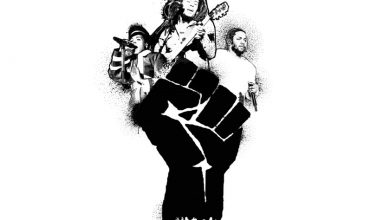
The Ones Who Walk Away from Omelas by Ursula K LeGuin is one of the most powerful fictional commentaries on the nature of morality, the relationship between individuals and society, and the nature of collective happiness and individual suffering. Addressing the philosophical and moral dilemma, the work is concerned with an inspection of the righteousness of the trade-off between the misery and suffering of a single child and the happiness of the entire population in the city of Omelas. The nature of happiness and the sacrifice that serves as its foundation comes to the fore through LeGuin’s critical enquiry.
Ursula K LeGuin was a 20th-century American novelist who carved a great reputation for herself in the sci-fi genre through creativity-driven descriptive writing. The fictional tract “The Ones Who Walk Away From Omelas” was published in an anthology titled New Dimensions in 1973.
The Ones Who Walk Away From Omelas | Summary
The prose begins with the announcement of the Festival of Summer by the narrator in the land of Omelas where celebrations are in full swing. Nature blesses this city by surrounding it with the sea, mountains, vegetation, and a population comprising all age groups participating in the procession and events with full enthusiasm. Joy seems to infect the atmosphere but the narrator ventures to describe the people of Omelas as happy people whose smiles have become “archaic” and they are not “simple folk.”
In an ideal setting with monarchy, slavery, and all other forms of administration absent, they are still complex like other humans from different parts of the world. The fairytale-like city is much harder to describe for the narrator who employs binaries along with ‘ifs’ and ‘buts’ exhibiting the overwhelming state of mind. Technological advancements depend on the will of its inhabitants and interestingly, the narrator encourages the reader to imagine the city in the best possible way where religion should be a yes but clergy a big no. There is no guilt in the people of Omelas and doing drugs is not an addiction.
The narrator digs deep into the best features that would appropriately describe Omelas in its ideal version. However, the disclosure of a little boy’s entrapment in the basement exposes the reality and cause behind the seeming bubbling happiness that swells the city. Its condition is something one cannot bear to look at— malnourishment, fear-driven state of mind, hunched back, screaming nights, barely surviving meals, and sitting in its own excrement. The gender of the child is unknown. People are aware of its existence and hence share different opinions on it –
“Some of them have come to see it, others are content merely to know it is there. They all know that it has to be there. Some of them understand why, and some do not, but they all understand that their happiness, the beauty of their city, the tenderness of their friendships, the health of their children, the wisdom of their scholars, the skill of their makers, even the abundance of their harvest and the kindly weathers of their skies, depend wholly on this child’s abominable misery.”
Young spectators visiting the child feel disgust and contempt but at the same time helpless too for the terms of the contract necessitate the child’s suffering to ensure their own well-being. Adding to this is one more incredible detail. Many adolescents and even adults after visiting the child do not come back home to express their grief but rather embark on a journey out in the street alone to a place not known to the narrator but definitely known to the people walking away from Omelas.
The Ones Who Walk Away From Omelas | Analysis
This philosophical writing is a thought-provoking narrative about the fictional city of Omelas where, according to the narrator, everything is desirable and everyone is happy. The evil forces which otherwise shadow the entire world have managed to avoid tainting this utopian land. However, LeGuin injects a sight of misery in this otherwise utopian setting that calls out to speculate and review our life choices. The exposition of the city’s happiness as a reliance on the eternal suffering of a child not only appeals to the emotional psyche of the readers but also compels them to analyze their own contemporary lifestyles and situations. It is evident in the day-by-day growing disparity between the rich and poor that the luxuries the former relishes are an outcome of the hard work and continuous toiling of the latter. While such a relationship is an inevitable aspect of the smooth functioning of humankind, the author implicitly aims to propose a more balanced and equitable position occupancy by both parties.
The utilitarian ethic that this work suggests as an indispensable principle fuelling the vehicle of life in the city of Omelas requires a re-examination. Who decides about the person liable to sacrifice his/her life for the betterment of others? Not everyone can be Jesus Christ— pure and noble, ready to give up his life for the entire mankind. It is the people in relative power both in wealth and stature who throw the figure of lamb into the pitfalls of sacrifice and suffering. Citizens of Omelas who are aware of the child in the broom closet share mixed opinions on the subject ranging over ignorance, acknowledgment, lament, and helplessness. But only a few are unable to live up to the guilt and hence, leave the city. But what good does their exit do to the child? By projecting their guilt through their departure, they are not contributing to the well-being of the child but rather once again working for their own self-interest i.e. to live the future moments of life guilt-free.
In this line of thought, the narrator’s stance also becomes crucial. We may interrogate the position of the narrator as a mere spectator attending the summer festival like a tourist or an actual citizen of the city. The limited knowledge about the operations of the city sides with the first presumption but the first person plural pronouns argue for the latter one. We can observe the first presumption in the following instances: “I do not know the rules and laws of their society, but I suspect that they were singularly few” and “Yet I repeat that these were not simple folk, not dulcet shepherds, noble savages, bland utopians. There were not less complex than us.” Here, the narrator sides with the readers who like him/her are viewing the city and its people from an outsider’s lens. But then in the description of the horses who are preparing for the race, the claim that it is the “only animal who has adopted our ceremonies as his own” renders the narrator a sense of belongingness to the Omelas.
While the narrator’s standpoint is fairly complex to determine, welcoming readers to contest the issue and participate in the dilemma is a great strategy to overcome the former obstacle. To let the readers imagine the city in their best possible version rids the narrator from the responsibility of an ideal illustration: “Perhaps it would be best if you imagined it as your own fancy bids, assuming it will rise to the occasion, for certainly, I cannot suit you all.” Also, later on in the story, the narrator inquires about the readers’ impression of the joyous city which for many would be next to impossible, and thus casts his/her own doubts through a rhetorical questioning:
“Do you believe? Do you accept the festival, the city, the joy? No? Then let me describe one more thing…”
The narrator’s own apprehension about the city and its beliefs presents itself in this poignant expression.
Acceptance is central to this text and so is its philosophical inquiry of it. Most of the people in Omelas who visit the miserable child and realize the true nature of their contentment with life desire to help the kid but “as time goes on they begin to realize that even if the child could be released, it would not get much good of its freedom: a little vague pleasure of warmth and food, no real doubt, but little more. It is too degraded and imbecile to know any real joy. It has been afraid too long ever to be free of fear. Its habits are too uncouth for it to respond to humane treatment. Indeed, after so long it would probably be wretched without walls about it to protect it, darkness for its eyes, and its own excrement to sit in. Their tears at the bitter injustice dry when they begin to perceive the terrible justice of reality and to accept it.” These people manage to find a compromising take on the child’s situation that allows them to feel for the child but at the same time ‘rationally’ opt for a way out of their predicament.
The author gives a choice to the readers when the text claims about a way out of a guilt-ridden life:
“To exchange all the goodness and grace of every life in Omelas for that single, small improvement: to throw away the happiness of thousands for the chance of happiness of one: that would be to let guilt within the walls indeed.”
What we choose shapes our character and hence the people of Omelas who walk away from the city choose to reduce their participation in the misery of the child by not becoming a recipient of the happiness that his/her suffering guarantees them.
The Ones Who Walk Away From Omelas | Literary Devices
Simile – “Children dodged in and out, their high calls rising like the swallows’ crossing flights over the music and the singing.”
“Surely the beautiful nudes can just wander about, offering themselves like divine souffles to the hunger of the needy and the rapture of the flesh.”
Irony – “In a basement under one of the beautiful public buildings of Omelas, or perhaps in the cellar of one of its spacious private homes, there is a room…[which] is about three paces long and two wide: a mere broom closet or disused tool room. In the room, a child is sitting.” The child is merely given a space in the big home.


